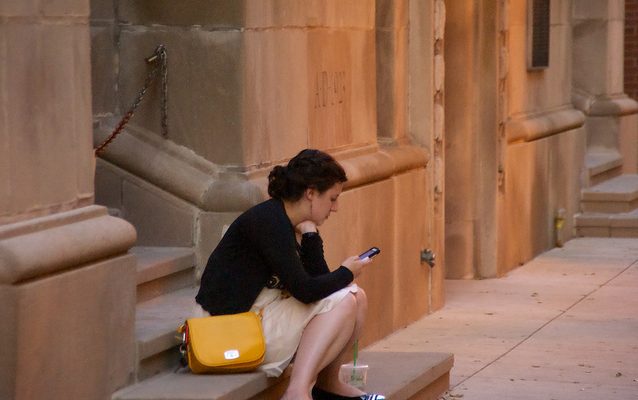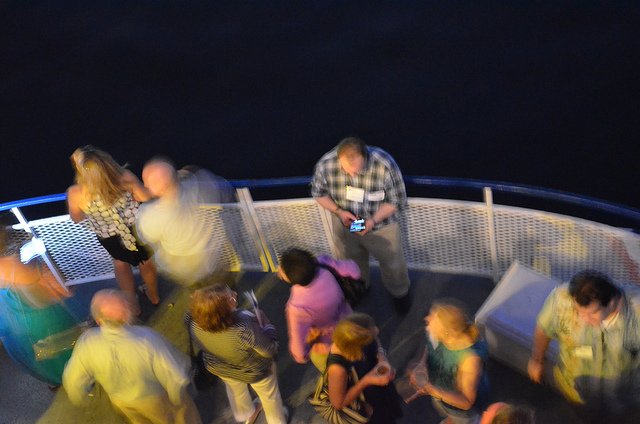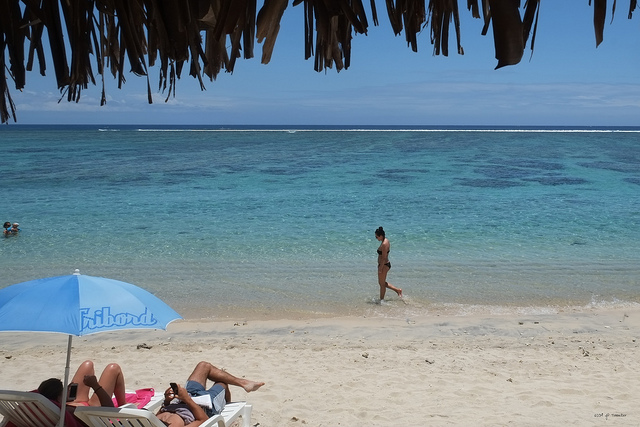

My aunt once said to a room full of extended family, “Why the hell did all of you come all this way just to stare at your phones?”
She’s great. Indeed, we were all engaged with our devices. The family had come together for a reunion and there we sat relating to our phones more than each other. To make matters worse, we were in a place so beautiful it’s actually called Eden – a farming town in Utah that’s ski bum paradise in the winter.
Why can’t we put our devices down when we’re on vacation? It’s endemic. The very experiences and places we long for – the beaches of Puerto Rico, the Van Gogh Museum – are eschewed by email, Facebook and the clingy need to document our travels. Take a look around your next destination and count the devices. I estimate one in three travelers are on their phones when sitting down, and some are even online while walking.
Despite our co-dependent love affair with our electronics, new research finds that we’re better off without them while on vacation – and also that it’s very hard to put them down when we leave home.
Sixty-five percent of respondents, to a survey issued by Intel Security, reported greater satisfaction from their travels after unplugging. Disconnecting from your device allows you to mindfully experience the surroundings that you desired to experience in the first place. This addiction to our phones, one to which I’m very much subject, robs us the novelty that makes travel great.
The majority of study participants reported better connecting with travel partners for having abstained from their phones. This probably applies more broadly to life as a whole. How many opportunities for mealtime conversation have been lost to smartphones? Like the family vacation I mentioned above, phones are used to avoid people just as often as connect. Relationships are hard. But it’s the awkwardness of getting to know someone better and the effort of establishing ties that give life, and travel partnership, its richness.
The Intel study reported that millenials were, surprisingly, more willing to disconnect from their devices than older travelers. It’s as though we’ve binged so badly on media that a purge seems welcome. Men were somewhat more likely to disconnect from their devices than women, but the study did not reference or investigate why this might be so. I hesitate to speculate, and I can’t imagine why.
All in all though, a horrifying 55 percent of travelers who attempted to forego use of their devices were unable to do so. That is the definition of addiction. Technology addiction is stealing our ability to navigate life the way we intend.
The study goes on to highlight the risks of using devices while traveling and the ways in which this can create vulnerability to cyber attacks as well as real-world crime.
Unsecured Wi-Fi and Bluetooth connections are an easy way to access consumer data and credit card information. By planting a router-like device within a Wi-Fi field range, cyber criminals can essentially see what you’re typing in real time. Passwords, bank account information and email logins are all vulnerable to observation. The traditional travelers’ belt with the pocket inside for cash will do little good here.

But less technologically advanced crimes occur as well. Hometown thieves can track our social media for updates on our location to know when we’re away from our homes. If you’ve ever snooped out a potential roommate or employee, you know how easy it is to collect a portrait of information from online sources. When we post our photos from the beach on Facebook, the world at large can see our location plainly, often explicitly – “Cozumel’s great! Wish you were here!” This might as well broadcast to criminals that the front door is unlocked and they can go ahead and stay the night before making off with your valuables.
Tech devices can also create a simple type of obliviousness that would-be thieves can take advantage of in situations unfamiliar to vacationers. We are less likely to be mindful of our possessions at an Argentinean bus station if rapt in a game of Candy Crush. This type of common sense awareness is important while traveling, whether descending a mountain trail or hailing a cab downtown.
I don’t want to moralize too much about device addiction because that would make me an even bigger hypocrite than I already am. I’m absolutely hooked to my phone and the ability to access knowledge at any given moment. It’s a familiar refuge, a seductive entertainment source, and an empty promise that I can fill every moment of the day to its very fullest with productivity, maximizing my time and bettering my life.
I’m returning emails, on social media or reading the news most of the time I’d otherwise be idle. If I’m in an airport, all bets are off – I’d rather be playing some asinine game to pass the time, even as the battery on my iPad drains.
And to make matters worse, these nasty things shoot great HD video too. The photos and movies we want to take while on vacation naturally lead us to phone use, and even enable us to share them almost in real time. I once witnessed a tourist taking a picture of another member of their party posing as though they were taking a picture! It is indeed an important part of the vacationer’s experience, and I guess they thought it was worth documenting unto itself.
In general, the findings of the survey suggest against smart device usage to maximize the return on your vacation experience. More pointedly, Intel Security recommends waiting until returning from paradise to post those pictures to Instagram so potential criminals don’t know you’re not home. It also recommends turning off the Wi-Fi function on your device despite the exorbitant data charges that your provider may be charging you.

It may be that we “capture” our travels, and document our experience more so than experiencing that experience directly. But time and experience are not material; they cannot be kept for later.
Maybe it’s that fact – that we can’t take our vacation with us – that compels the picture taking. We don’t want to miss a moment, but in actuality our relationships with our devices leave us missing many!
Author Bio: Jack Bohanan is a freelance writer and a smartphone-addicted technophobe living in Denver, Colorado.
- Top 10 Things to Do in Ireland - April 25, 2024
- How to Get Around in Sydney: A Local’s Guide to Traveling Around Sydney - April 24, 2024
- The Low-Key Magic of Ghent, Belgium - April 22, 2024
